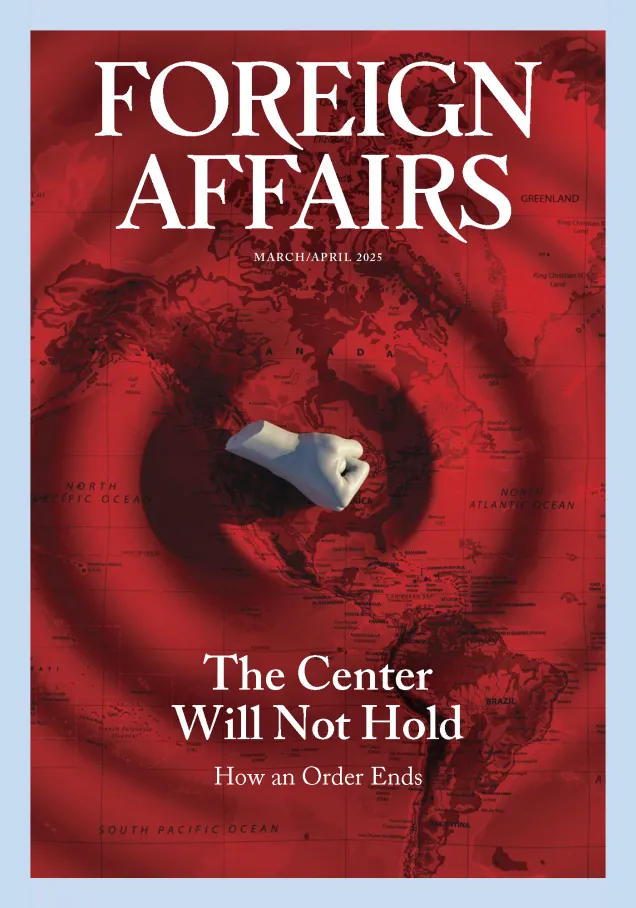
作者/Author(s): Tetiana Kyselova and Yuna Potomkina
網站來源/Source: Foreign Affairs
日期/Date: 03/01/2025
關鍵字/Keywords:和平協議、烏克蘭、俄烏戰爭
摘要:
在新的和平談判中,俄羅斯可能會再次干涉烏克蘭內政,要求烏克蘭迅速舉行總統選舉、接受俄語作為官方語言,並恢復俄羅斯東正教會在烏克蘭的地位。然而,這次烏克蘭的領導人和民眾將堅決抵制俄羅斯施壓。如果俄羅斯、美國及其他方在烏克蘭沒有充分參與的情況下決定停火條件,烏克蘭可能無法確保自身國家利益,也難以說服民眾接受該協議的合法性,這很不利於執行停火協議,甚至可能引發烏克蘭國內抗議。
- 沒有任何停火協議能夠完全滿足烏克蘭或俄羅斯的要求,因此,該協議必須在談判過程中及簽署後,設立嚴格的第三方監督與執行機制。
- 《明斯克協議》雖然有執行機制,卻不足以約束俄羅斯。
- 第一個是允許歐洲安全與合作組織( OSCE))特別監察團監督違反停火的情況,並確認雙方是否皆從前線撤退重型武器。
- 第二個是俄羅斯和烏克蘭設立的聯合控制和協調中心(JCCC),讓雙方的觀察員能更準確地監督任何違反停火的行為。
- 然而,這兩個機制都缺乏對違反者的懲罰和恢復遵守條款。
- 《明斯克協議》的模糊性讓俄羅斯長期違反停火協議也不受懲罰,甚至利用協議漏洞來操控頓內次克和盧甘斯克的政治局勢。
- 國際社會未曾嘗試修正《明斯克協議》的缺陷。
- 因此,俄烏之間的停火協議必須盡量具體,並包含實際的監控、驗證、問責、執行及制裁機制。
- 考慮到現代戰爭的特徵和衝突區域極大,簽署方必須制定實際可行的技術方案,才能準確執行停火政策。
大多數歐洲領導人都明白烏克蘭對其國家安全的重要性。因此,他們必須避免重蹈《明斯克協議》的覆轍,堅定支持烏克蘭,並與烏克蘭協調談判策略。同時,川普政府必須確保烏克蘭戰線穩定後再進行談判,並杜絕明斯克協議的缺陷再次發生。
Summary:
Russia may once again interfere in Ukraine's domestic affairs in the new peace negotiation, demanding Ukraine hold quick presidential elections, accept the Russian language, and return the Russian Orthodox Church's position in Ukraine. This time, Ukraine's leaders and citizens will refuse Russia's tactics steadfastly. However, if Russia, the U.S., and other parties dictate the conditions of a ceasefire without sufficient input from Ukraine, Ukraine may not secure its national interests or convince its people to accept the deal's legitimacy. It will halt the ceasefire's implementation or even incite protests in Ukraine.
- No ceasefire deal will completely satisfy Ukraine or Russia. Therefore, the agreement necessitates stringent third-party oversight and enforcement during the negotiation process and after its signing.
- The Minsk agreements had enforcement mechanisms but were inadequate.
- The first allowed the OSCE Special Monitoring Mission to oversee ceasefire violations and validate both sides' retreat of heavy weapons from the frontlines.
- The second is the Joint Center for Control and Coordination, instituted by Russia and Ukraine to allow both sides to enable observers to oversee any ceasefire violations better.
- However, neither mechanism lacked sanctioning and compliance restoration clauses for violators.
- The Minsk agreements' ambiguity enabled Russia to repeatedly infringe on the ceasefire without any consequences or exploit loopholes to decide the political outcomes in Donetsk and Luhansk.
- No efforts have been made to mend the defects of the Minsk agreements.
- Therefore, a ceasefire deal between Ukraine and Russia must be as detailed as possible and include actual monitoring, verification, accountability, enforcement, and sanctioning clauses.
- Due to the nature of modern warfare and large conflict zones, the signatories must also include practical technical solutions to enforce the ceasefire.
- Europe must be more disciplined and responsible in monitoring and enforcing the ceasefire agreement.
Most European leaders recognize Ukraine's importance for their national security. Therefore, they must avoid the flaws of the Minsk agreements, give Ukraine unwavering support, and coordinate with Ukraine's negotiation strategy. At the same time, the Trump administration must ensure Ukraine's frontline is stable before any negotiations take place and prevent the shortcomings of the Minsk agreements.
